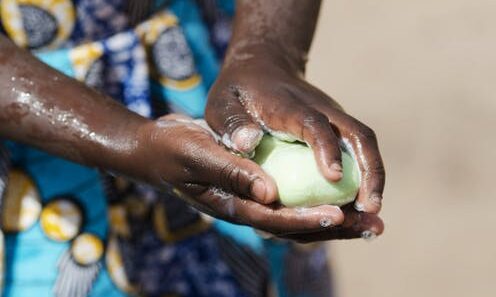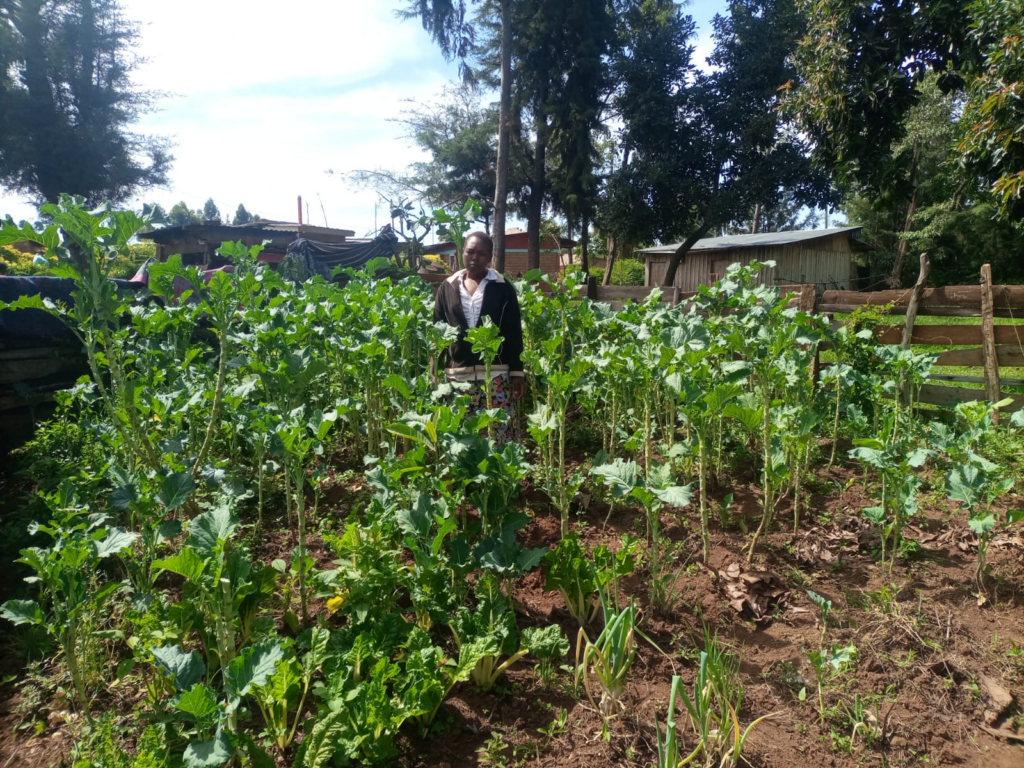
APF partner Transformation Compassion Network (TCN) is an interdenominational network that trains Christians in Kenya in bringing holistic development to their communities. TCN Director Walter Rutto shared Betty’s story with us. It illustrates exactly the sort of transformation TCN seek to bring about in the lives of individuals, households and whole communities.
Betty Chepkirui is a real fighter. She is a single mother of three children and a resident of Balek Village in Bomet County, south-western Kenya. She’s an active member of St John’s Catholic Church.
Her past life experiences, however, had left her with much bitterness. The Bible says that out of the abundance of the heart the mouth speaks (Luke 6:45) and her words were an expression of endless pain.
A simple question from anyone would result in knocks, kicks and fights. She just wanted to be left alone and she believed that no one cared about her.
Then Betty joined our Kingdom Business course. Kingdom Business is a six-month course with three modules, each taking eight weeks. Learners attend class once a week for three hours to complete three lessons. This is a training that seeks to work on the mindset change for holistic transformation.
In the course is a topic called ‘Christian growth – experiencing God’s love and forgiveness’. Through this part of the course, Betty began to find some release from the past pain she had suffered from, began to forgive those who had oppressed and hurt her and experienced God’s healing in her life. It was like seeing medicine for the heart in action.
After the healing of her heart and mind, the healing further spread to her entire household. We soon began to see how Betty began to transform her smallholding, following the training we were providing very well. As her garden began to be more fruitful, the whole household began to experience a calm environment and her entire family discovered God’s love through this transformed woman.
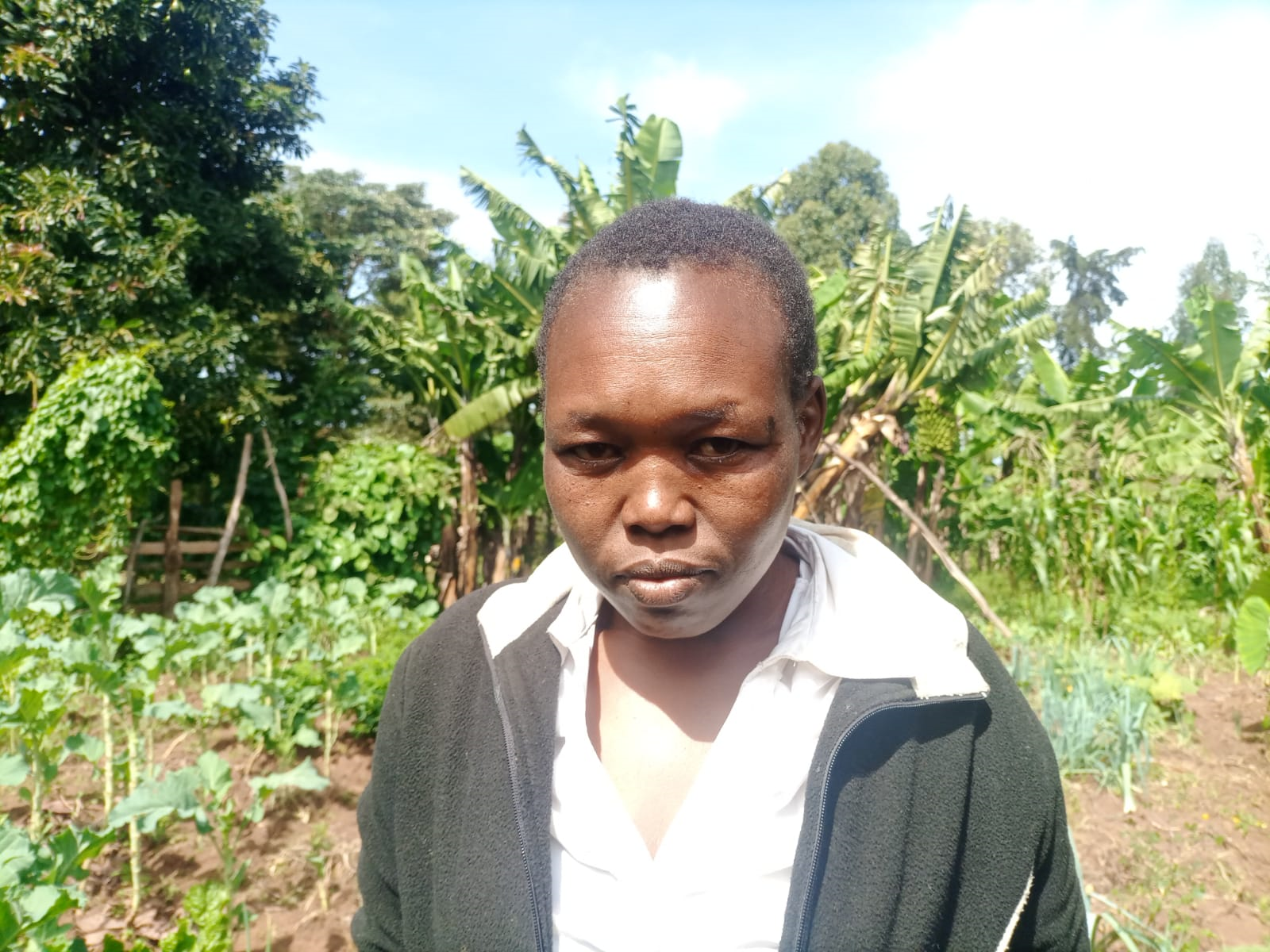
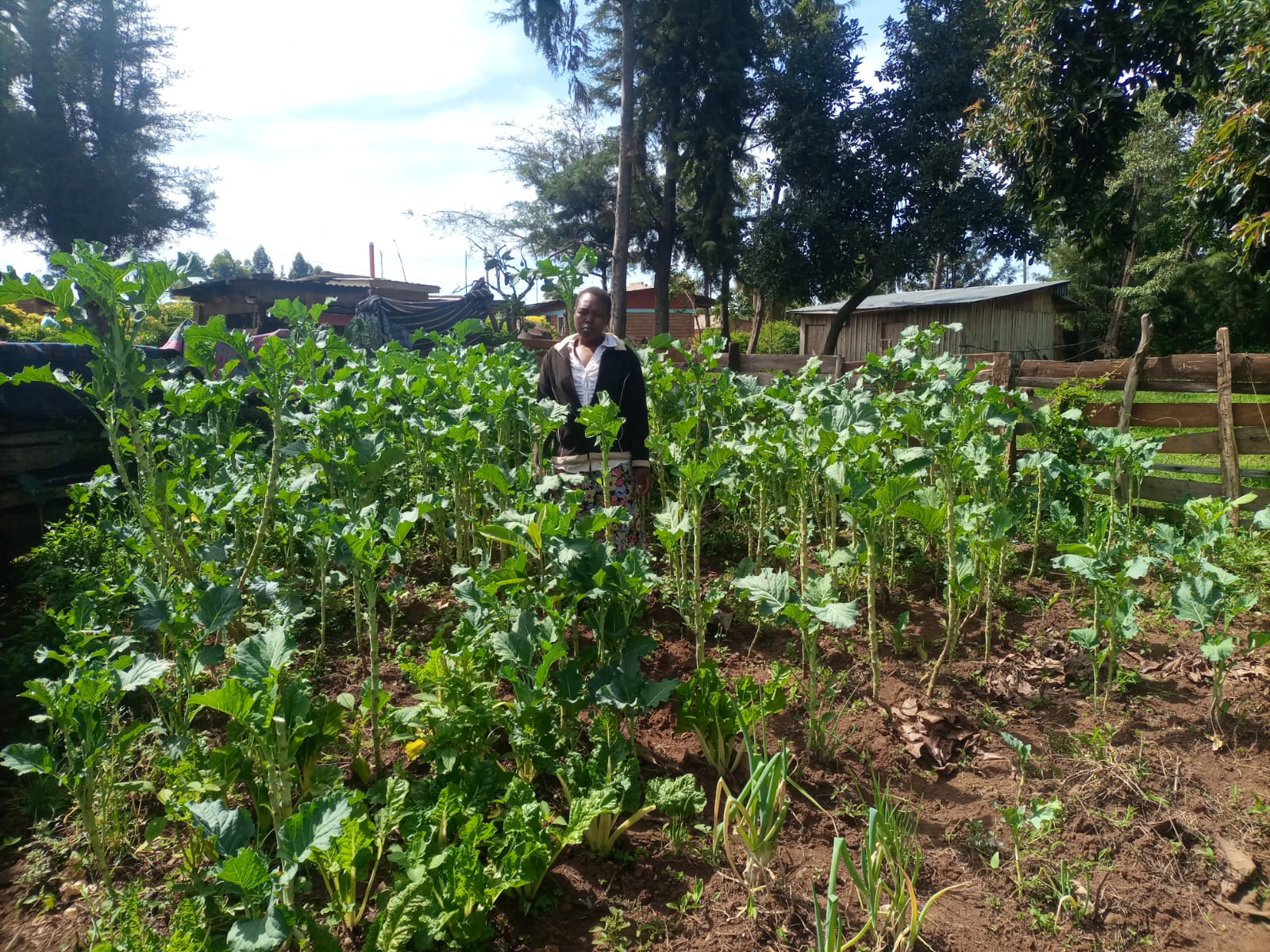
Now Betty keeps poultry and dairy cows that help to feed her family. She sells surplus products and the extra income cushions her household budget.
The proceeds from her farm also helps her support her ailing mother. This has not been easy as she is the firstborn in her family. In this part of Kenya, it is said that a firstborn should be like an assistant parent. When the parents are not in a position to meet the needs of their dependants, all those family responsibilities are transferred to the firstborn child.
Since Betty’s life turned around, she has further known to walk in the way of the gospel. Because she has enough for herself and her children, she is now able to give offerings and tithes in church and also support the needy who live nearby in small but important ways. One of the best indicators of successful holistic training is when we look at church tithing records and note a tangible improvement stemming from community and economic development hand-in-hand with Christian discipleship.
Another aspect of our teaching programme covers household hygiene, health and wellbeing. Betty has taken this on board and kept this message close to her heart. Her compound is now always very clean, litter disposed of and the children know how to wash their hands before eating. This is no small thing and just these simple things can stop the spread of germs and bacteria. Diarrhoea remains a leading cause of death of children in Kenya.
When we asked Betty if we could share her story with African Pastors Fellowship and other partners, she was glad to do so to show just how transformative holistic training can be. Out of enthusiasm and without supervision, she is now teaching others in her village how to walk this journey too. Many are listening since it is evident that she’s a transformed woman.

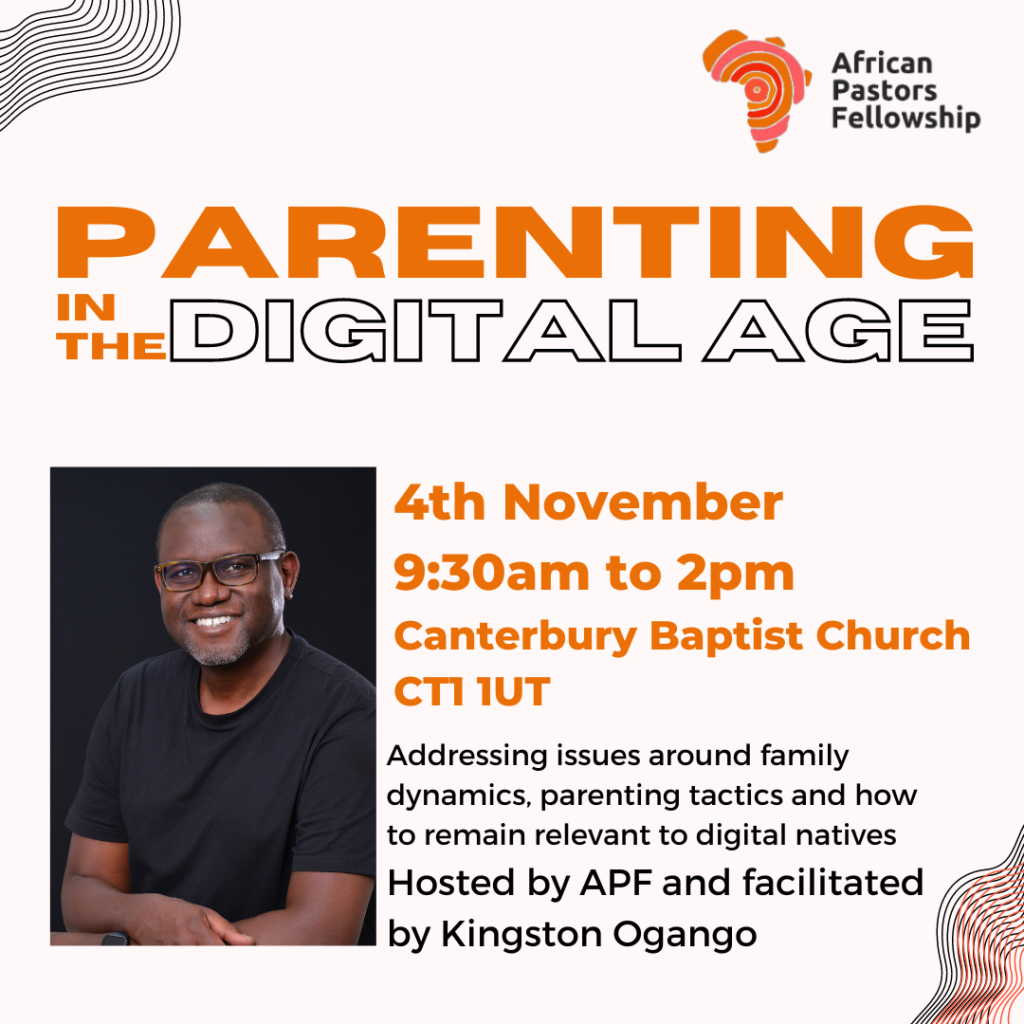
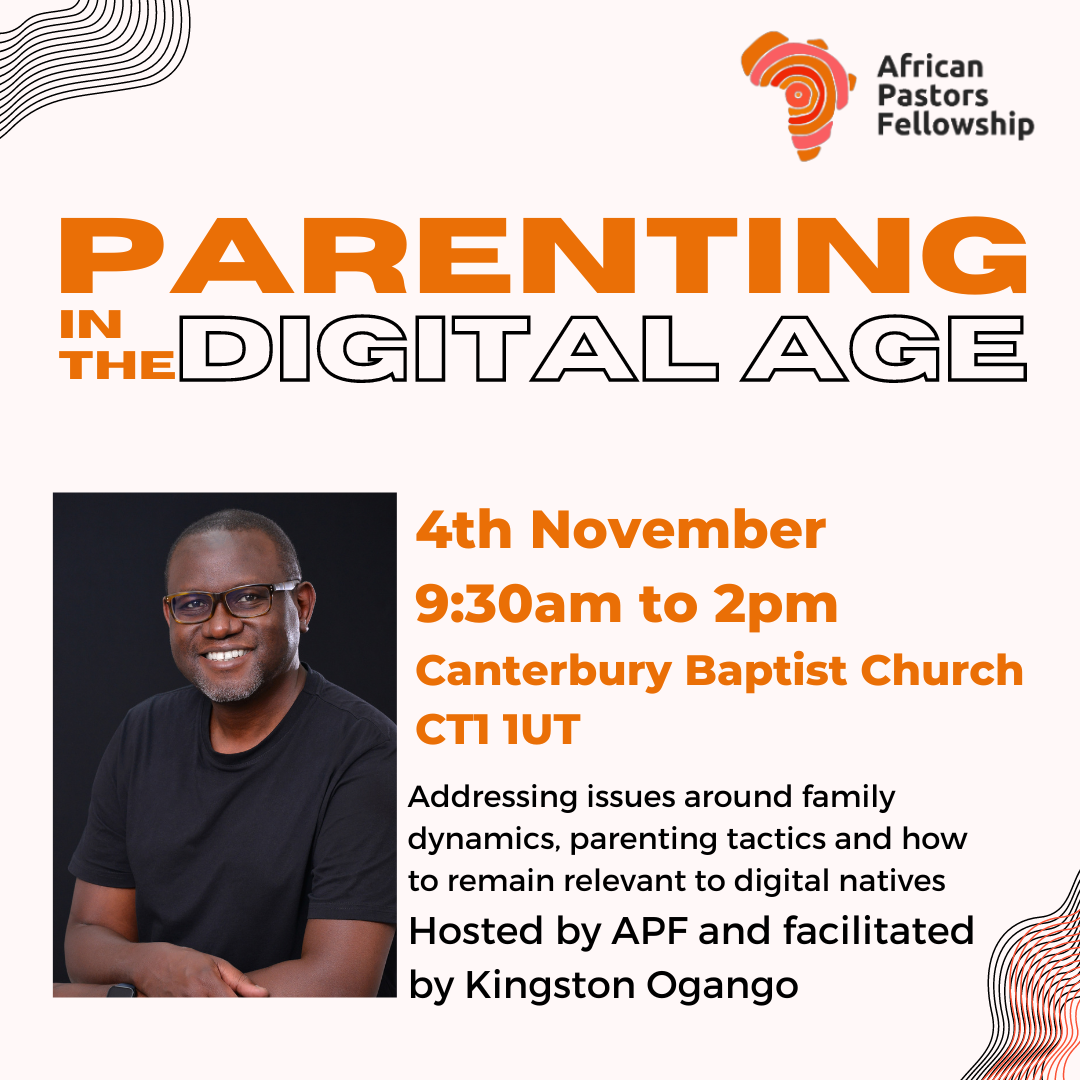
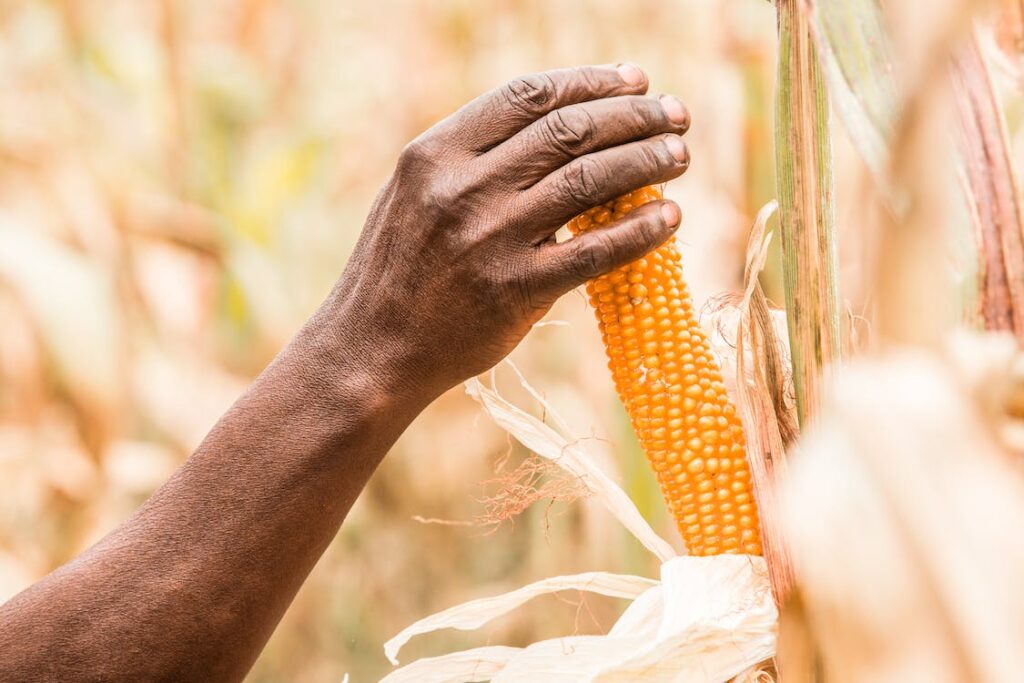
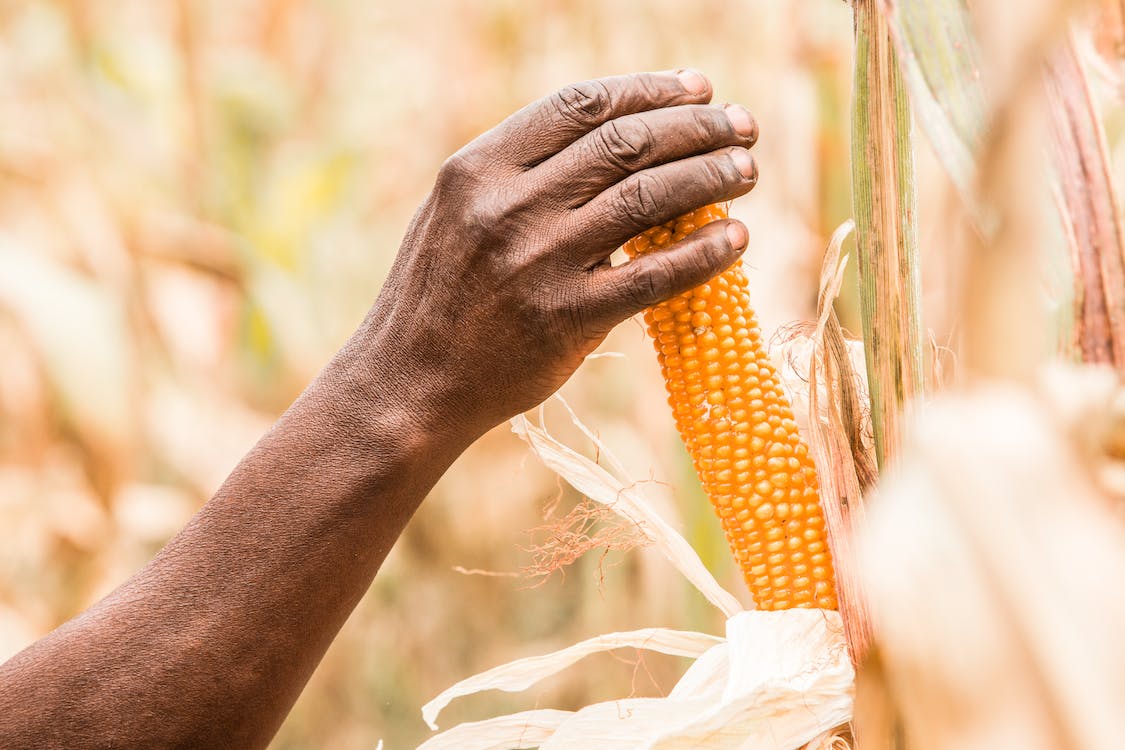
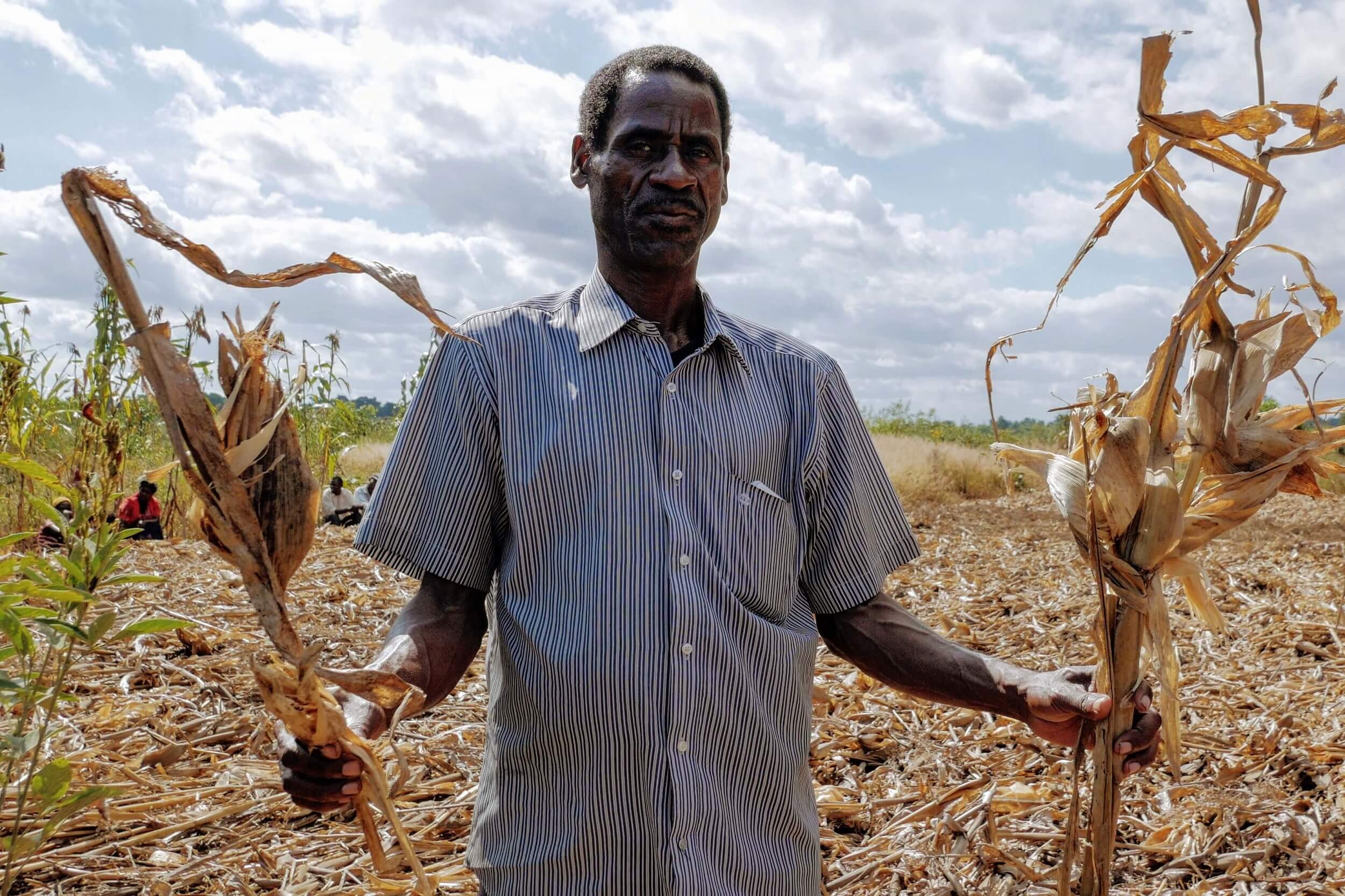
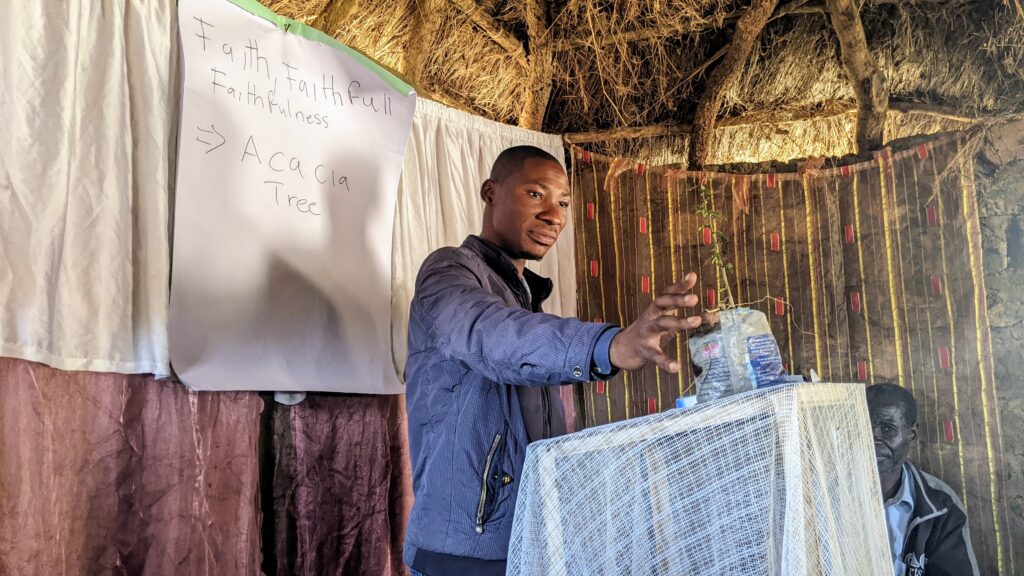
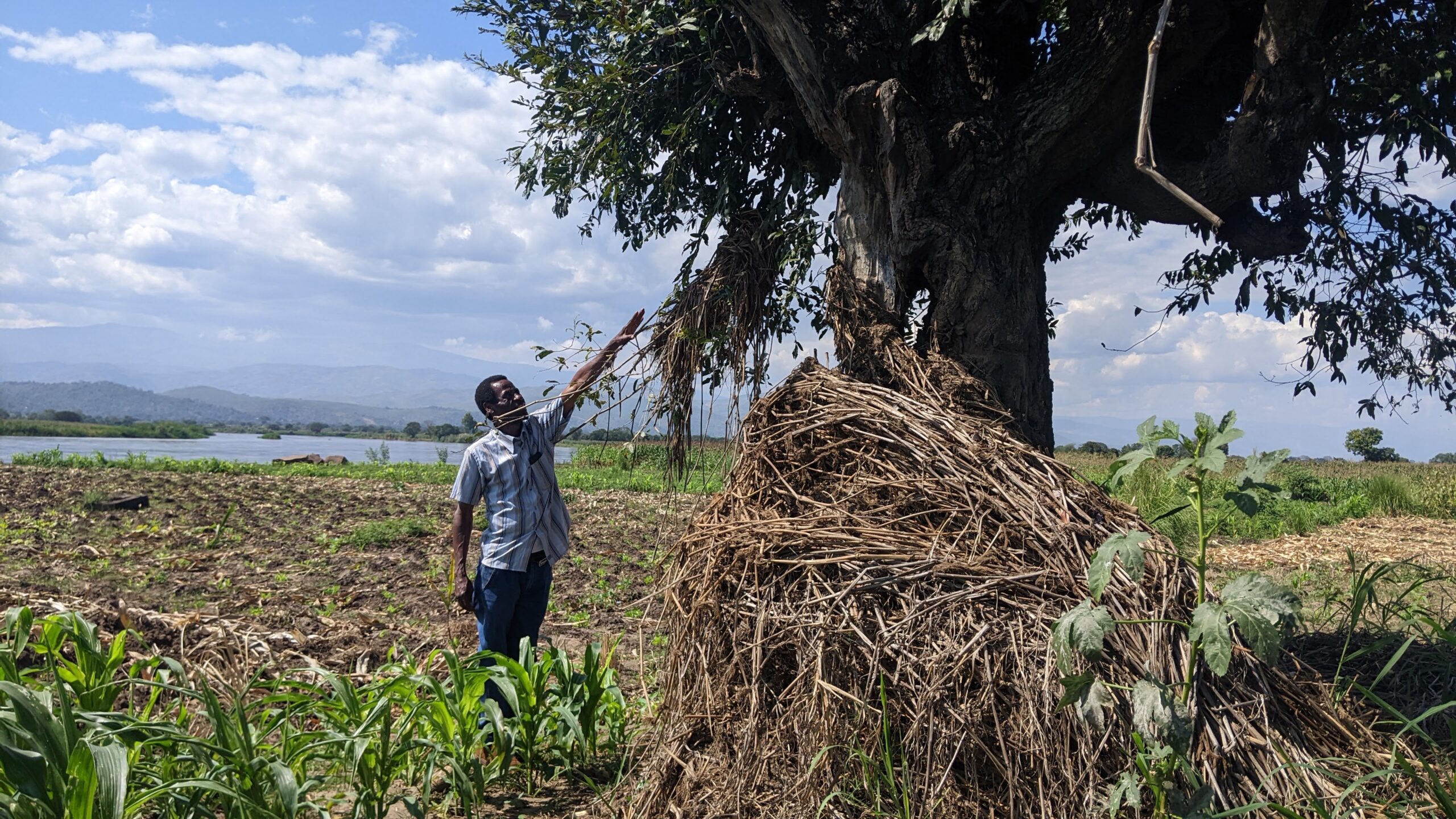
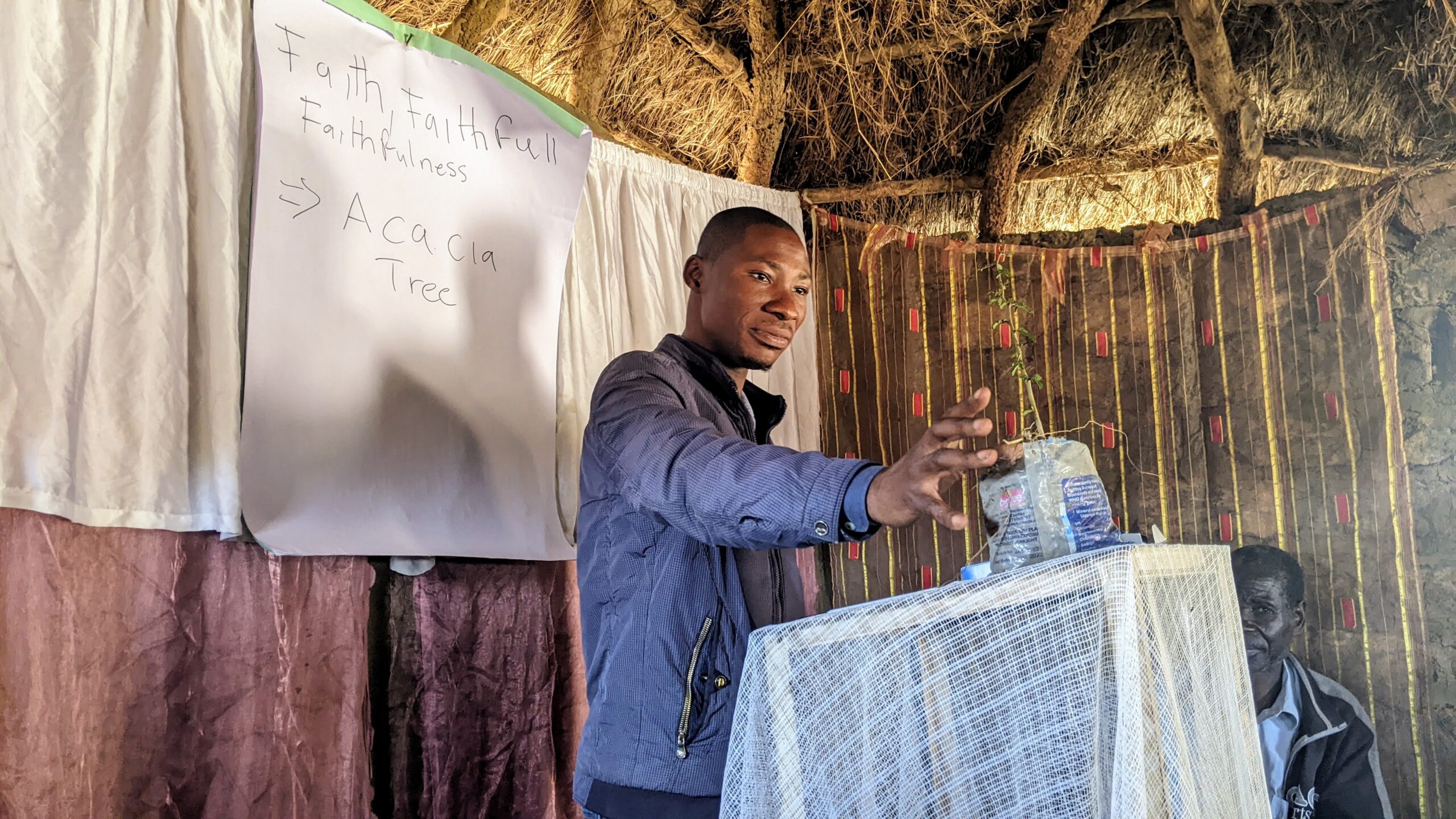
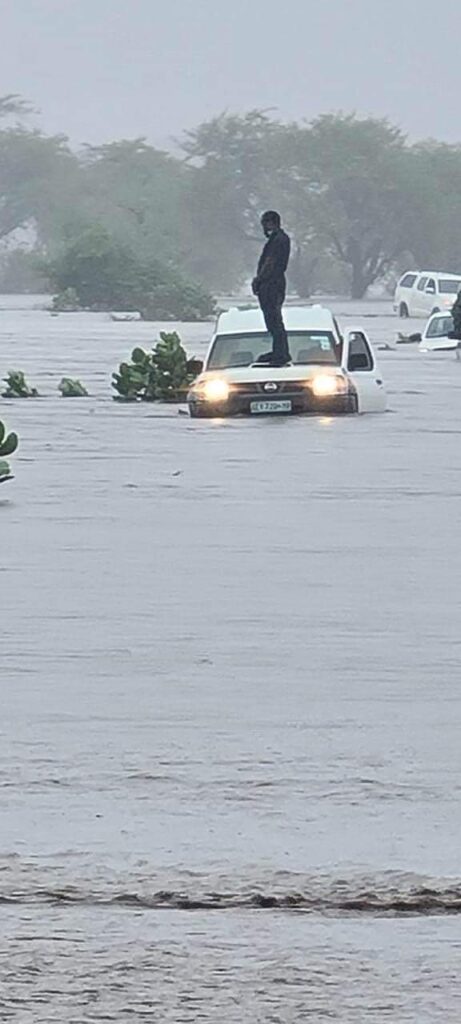
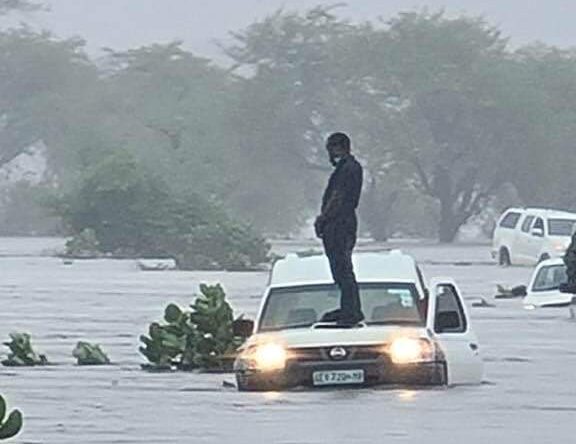
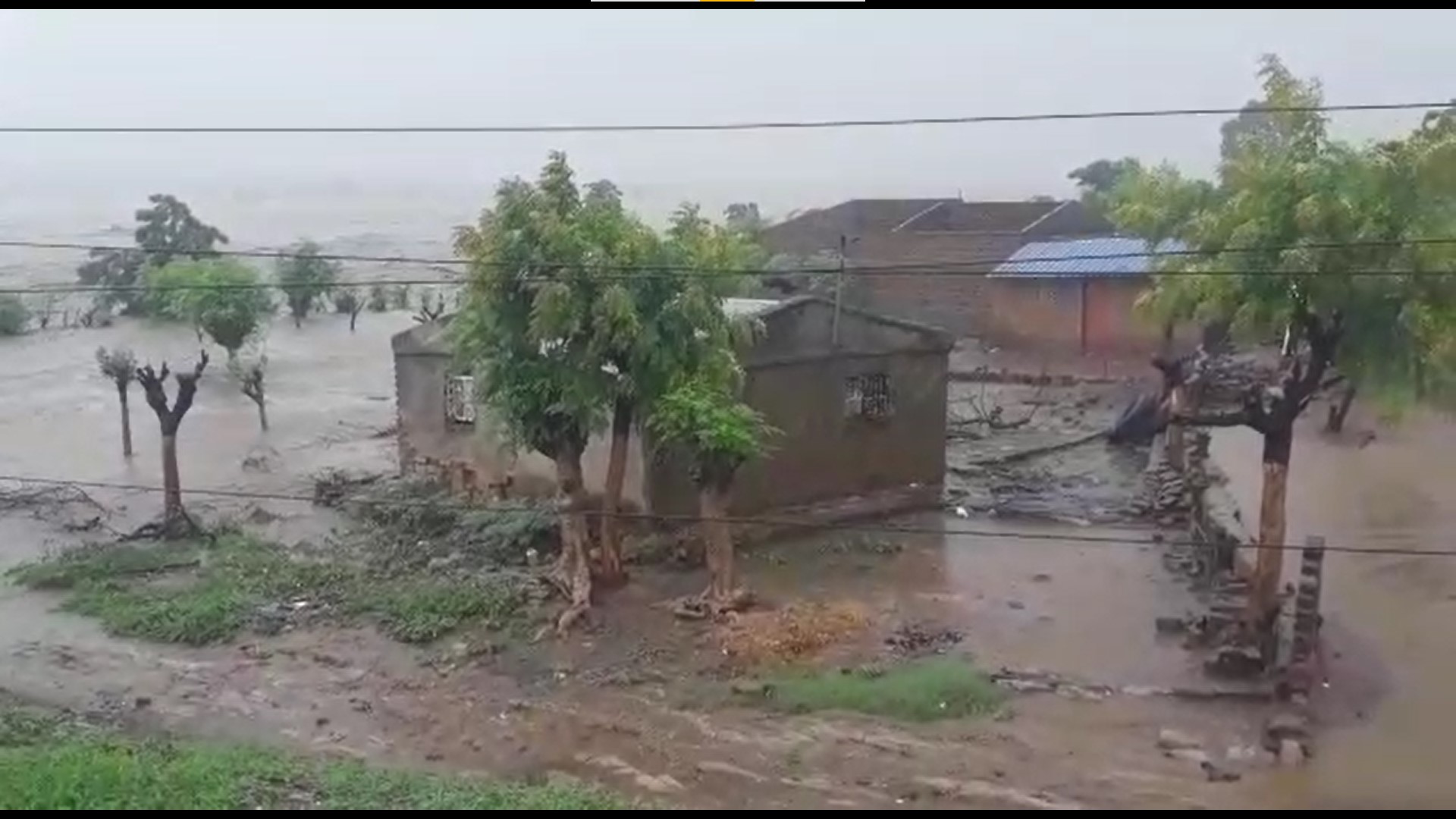
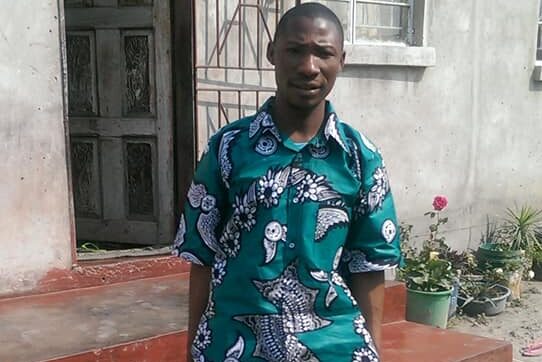
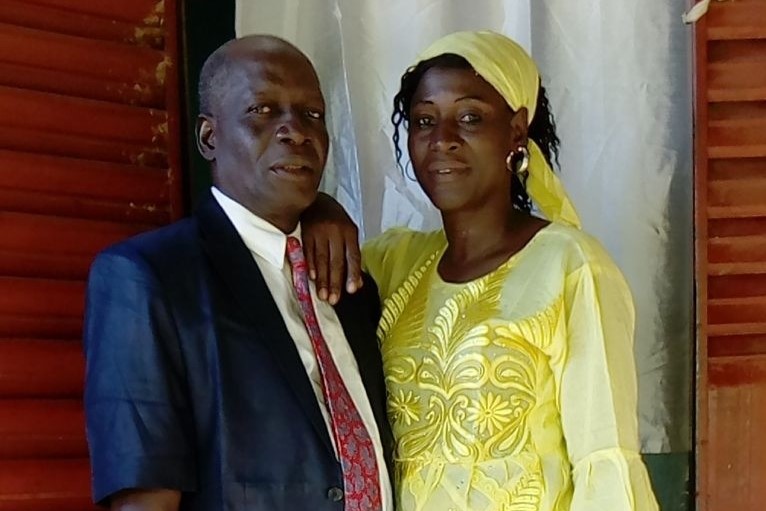
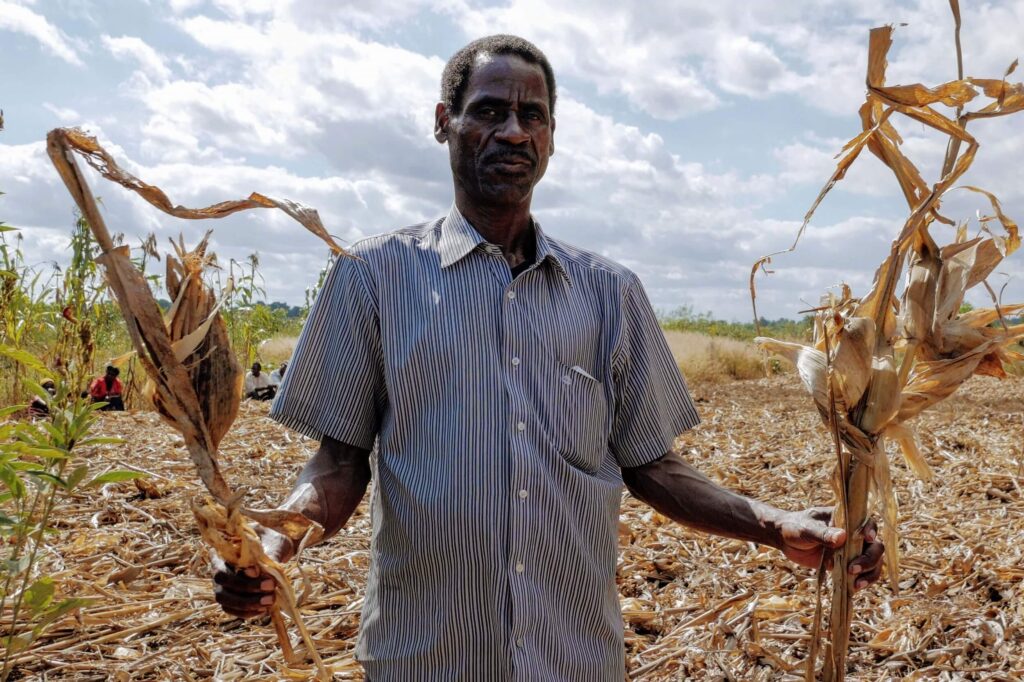
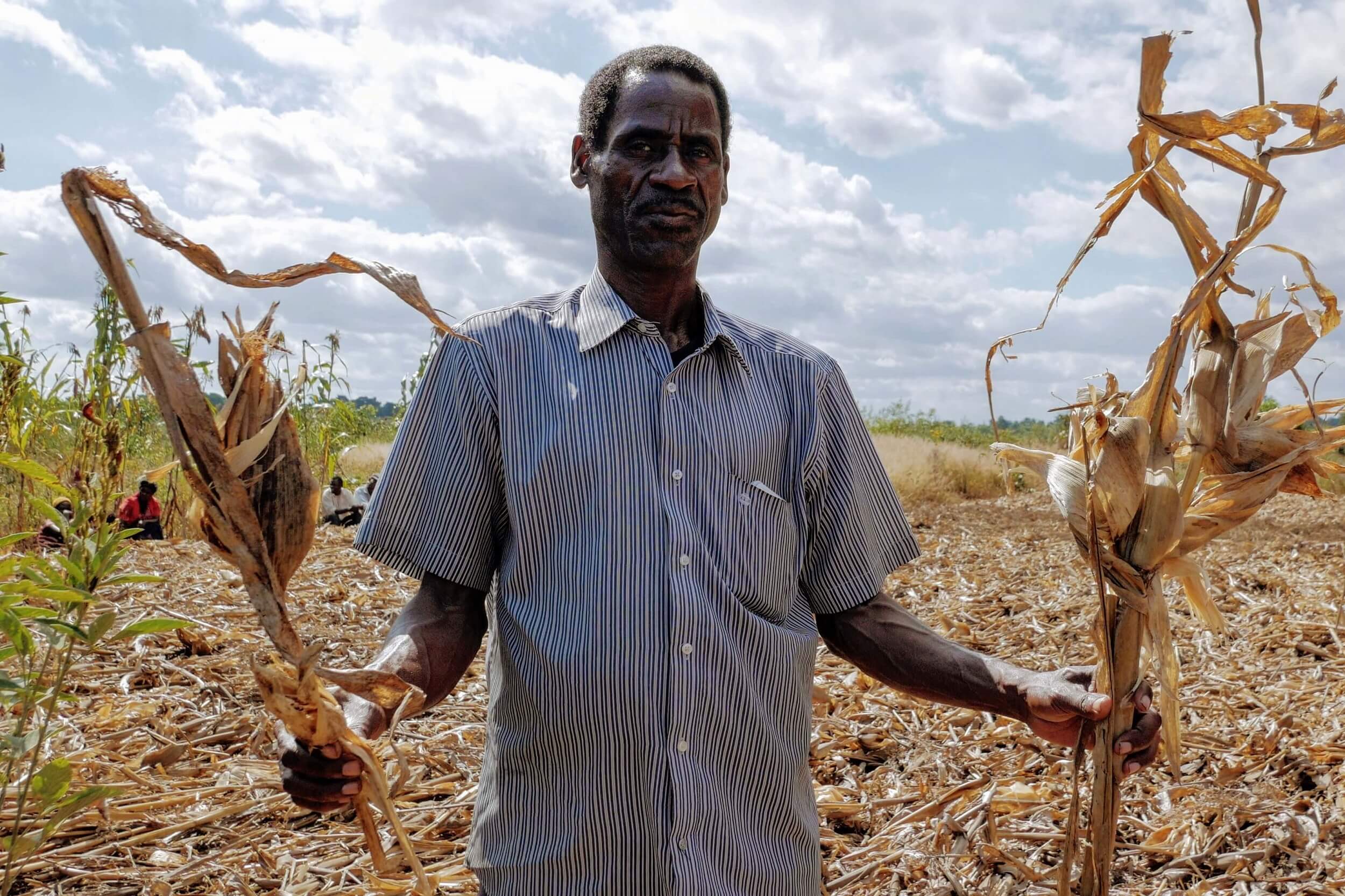
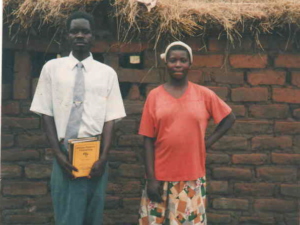 Lloyd with a pastor’s wife at an APF training event in the early 2000s.
Lloyd with a pastor’s wife at an APF training event in the early 2000s.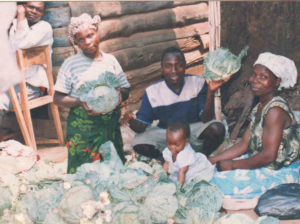 Household income generation schemes
Household income generation schemes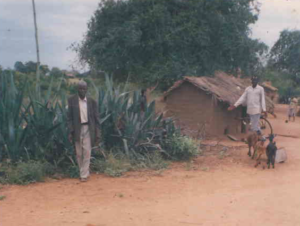 Milk, meat and young. Rural households
Milk, meat and young. Rural households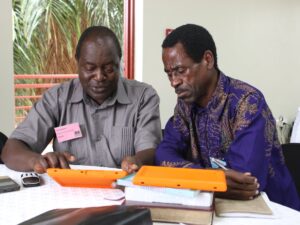 Revd Paul Kylimpa (l) from Uganda and Lloyd (r) checking out some of the farming resources on eVitabu during the app’s launch event held in Kampala during 2018.
Revd Paul Kylimpa (l) from Uganda and Lloyd (r) checking out some of the farming resources on eVitabu during the app’s launch event held in Kampala during 2018.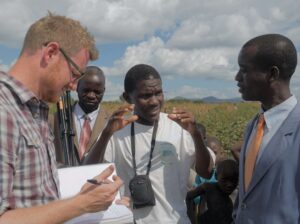 Geoff Holder speaking with farmers participating in Growing Greener, 2017.
Geoff Holder speaking with farmers participating in Growing Greener, 2017.